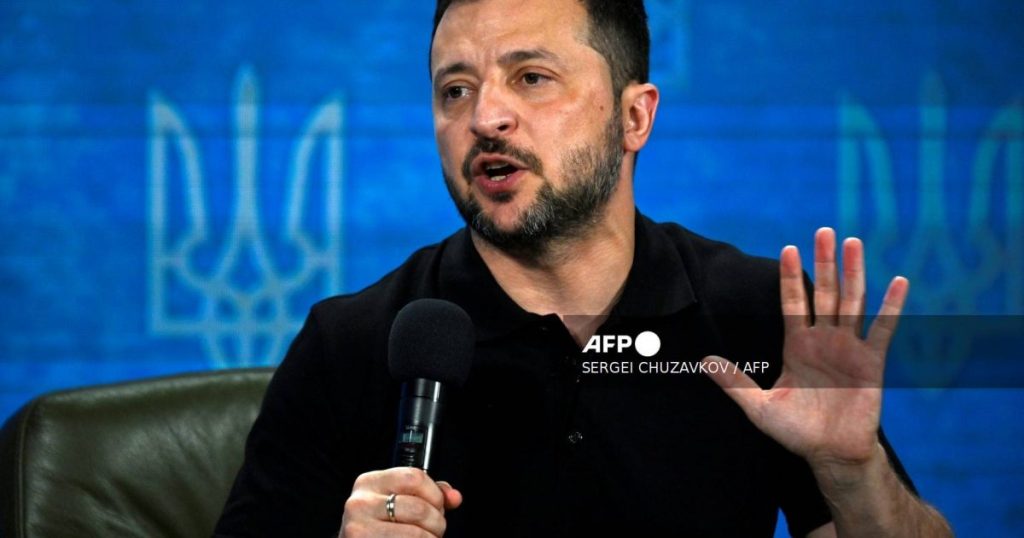The Ukrainian government, led by President Volodymyr Zelensky, has vehemently rejected a proposed three-day ceasefire announced by Russian President Vladimir Putin, denouncing it as a cynical ploy to manipulate public perception and control the narrative surrounding the ongoing conflict. The timing of the proposed truce, coinciding with Russia’s Victory Day commemorations marking the end of World War II, has further fueled skepticism and suspicion regarding the Kremlin’s true intentions. Zelensky, in his daily address, questioned the rationale behind waiting until May 8th for the ceasefire to commence, emphasizing the urgency of an immediate cessation of hostilities if Russia genuinely desires peace. Ukrainian officials have reiterated their demand for a comprehensive and immediate halt to the fighting, calling for a minimum 30-day ceasefire to provide a tangible demonstration of Russia’s commitment to de-escalation.
The international community has also expressed reservations about the proposed Russian ceasefire, with concerns raised about its limited scope and the lack of concrete steps towards a genuine peace process. The United States, a key supporter of Ukraine, has cautioned that the coming week will be crucial in assessing the sincerity of Russia’s intentions and whether the proposed truce represents a genuine effort to facilitate dialogue and negotiations. The skepticism surrounding the Kremlin’s motives stems from the historical context of the conflict, marked by repeated accusations of Russian aggression and violations of previous ceasefire agreements. The timing of the truce, aligned with Russia’s highly symbolic Victory Day celebrations, further complicates the interpretation of the offer, raising concerns that it is primarily intended for domestic propaganda purposes rather than a genuine commitment to peace.
Ukraine’s unwavering stance against accepting the limited ceasefire underscores its deep distrust of Russia’s motives and its insistence on a more comprehensive and durable cessation of hostilities. The demand for a 30-day truce reflects Ukraine’s desire for a sustained period of calm to create an environment conducive to meaningful negotiations and address the underlying causes of the conflict. The Ukrainian government’s firm rejection of the three-day ceasefire highlights the significant challenges in achieving a peaceful resolution to the ongoing war, as both sides remain entrenched in their positions and harbor deep-seated suspicions about each other’s intentions.
The international community faces the difficult task of mediating between the warring parties and fostering a climate of trust that can pave the way for productive negotiations. The skepticism surrounding the Russian ceasefire underscores the need for rigorous verification mechanisms and guarantees to ensure that any truce is genuinely observed and not exploited for tactical or propaganda purposes. The coming days and weeks will be critical in determining whether the proposed ceasefire can serve as a stepping stone towards a broader peace process or whether it will ultimately prove to be another failed attempt to de-escalate the conflict.
The ongoing war between Russia and Ukraine has resulted in immense human suffering and widespread destruction, highlighting the urgent need for a peaceful resolution. However, the deep-seated mistrust and conflicting narratives between the two sides pose significant obstacles to achieving a lasting peace. The international community must play a more proactive role in mediating the conflict and holding both sides accountable for their actions. The proposed Russian ceasefire, though met with skepticism, could potentially offer a window of opportunity for renewed diplomatic efforts if it is implemented in good faith and accompanied by concrete steps towards de-escalation.
The future of Ukraine and the stability of the broader region hang in the balance. The coming weeks will be crucial in determining whether the current impasse can be broken and a path towards peace can be found. The international community must remain vigilant and actively engaged in seeking a resolution to this devastating conflict, working to bridge the divide between Russia and Ukraine and create a future where peace and stability prevail. The urgency of the situation cannot be overstated, and the need for a comprehensive and lasting peace is paramount.


